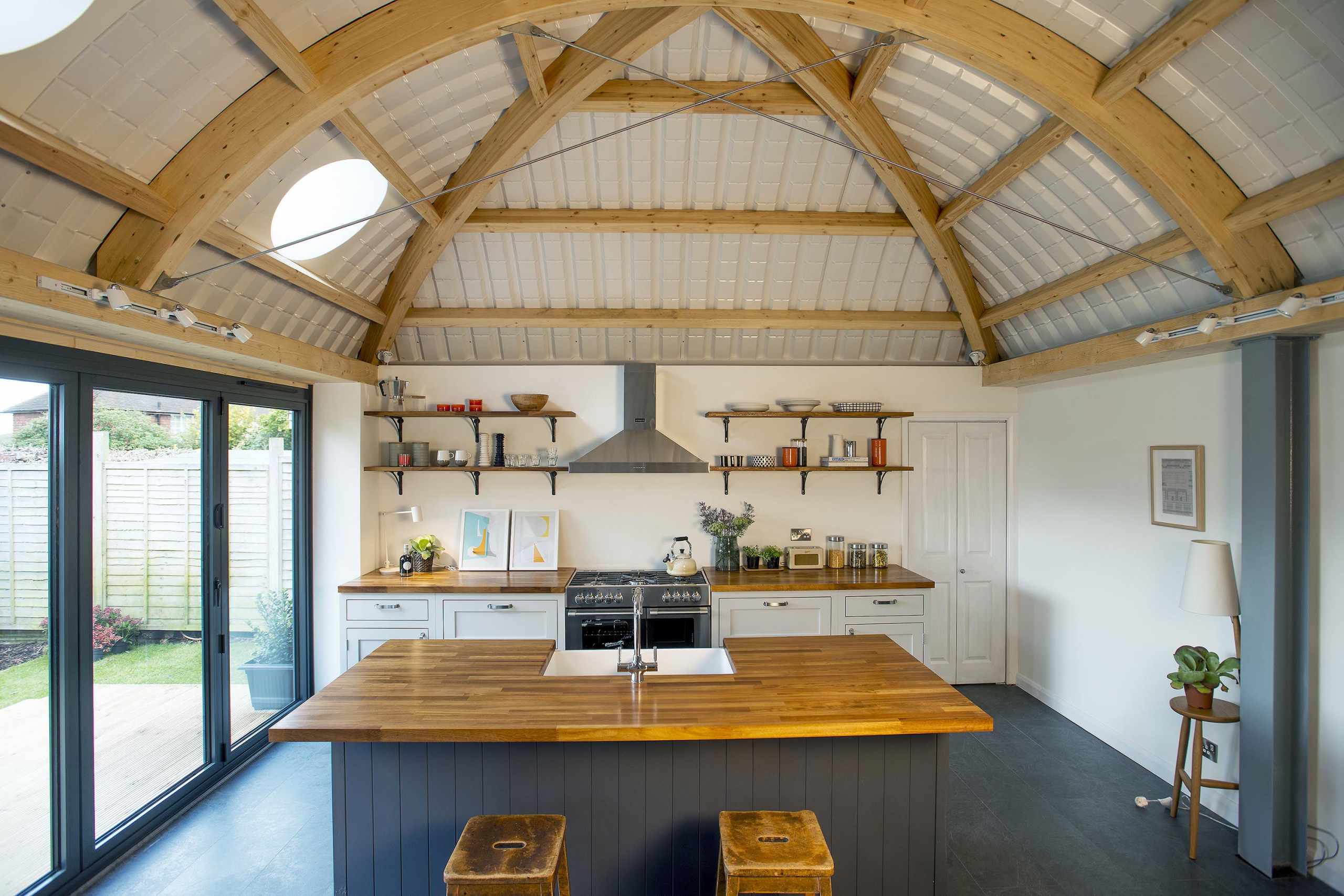Can you pay to extend planning permission?
You used to be able to pay to extend planning permission, but this has not been the case for many years now. Your two options now are to either:
- Submit a new application
- Make sure all the planning conditions are discharged and commence development* before the permission expires.
If the time has already expired you will need to submit a new planning application. Even if the design is exactly the same, there’s no guarantee that approval will be granted. However, the expired approval will certainly provide a strong precedent for the new application. It’s worth checking the local development plan and documents to see if anything has changed in the local planning policy since the original application was granted.
Featured image above – design by Lucy, architect from East London. Click here to see more and shortlist her for your home project.
How long does planning permission last?
Unless your permission states otherwise, full planning permission typically lasts for three years from the date the approval was granted. This means you have three years in which to commence development*. For outline planning permission, this can be up to five years (see below).
Can you make use of planning permission from a previous owner?
The good news is that planning permission is attached to the land, not the owner. However, it’s worth reading the planning permission conditions in detail as in some cases it might state that the work needs to be carried out by, for example, the particular developer who submitted the application.
*What does ‘commence development’ mean in relation to planning permission?
This can be a very pertinent question if your planning permission is soon to lapse. The Town and Country Planning Act describes actions – ‘material operations’ – that demonstrate the ‘commencement of development’:
- any work of construction in the course of the erection of a building;
- any work of demolition of a building;
- the digging of a trench which is to contain the foundations, or part of the foundations, of a building;
- the laying of any underground main or pipe to the foundations, or part of the foundations, of a building or to any such trench;
- any operation in the course of laying out or constructing a road or part of a road;
- any change in the use of any land which constitutes material development.
The subjective nature of commencing development is sometimes taken as an opportunity to extend the validity of the permission. However, it’s worth noting that the decision of what counts as commencing development is at the discretion of the planning authority, or the courts if necessary!
- Whatever work is done should be done in the right order and be relevant to your building proposal. So you would need to start work by doing the first thing that should be done e.g. the foundations.
- The work done should be substantial enough. Again, this subjective condition would be at the discretion of the planning authority.
Proof that development has commenced – certificate of lawfulness
Due to the subjective nature of ‘commencing development’, it can be a very wise to apply for a certificate of lawfulness, which proves that the work has commenced. This can be particularly reassuring if you are buying a property whose planning permission is soon to lapse. This must be applied for before the permission expires.
How long does outline planning permission last?
Typically, you will need to submit an application for any details not covered in the original application (reserved matters) within three years of the original outline permission being granted. However, with outline planning permission you usually have an additional two years from the final reserved matters approval in which to start building work. Always check your specific planning approval conditions, as these timescales could be different.
Get professional advice
Using a good architect will give you the best chance of gaining planning approval and their input and prior knowledge can be invaluable in terms of navigating the planning system and provide the best outcome in relation to your brief.
Finding the best architect for your project…
Design for Me is a free platform to help you quickly find the right design professional for your home project.
Once you register your project, we’ll match it with 100s of top architects or interior designers in your area and beyond, and you can see who may be available and eager to work on your project straight away.
- quickly see who’s interested in your job
- create a shortlist
- invite up to three for a no-obligation consultation
Emily Design for Me

